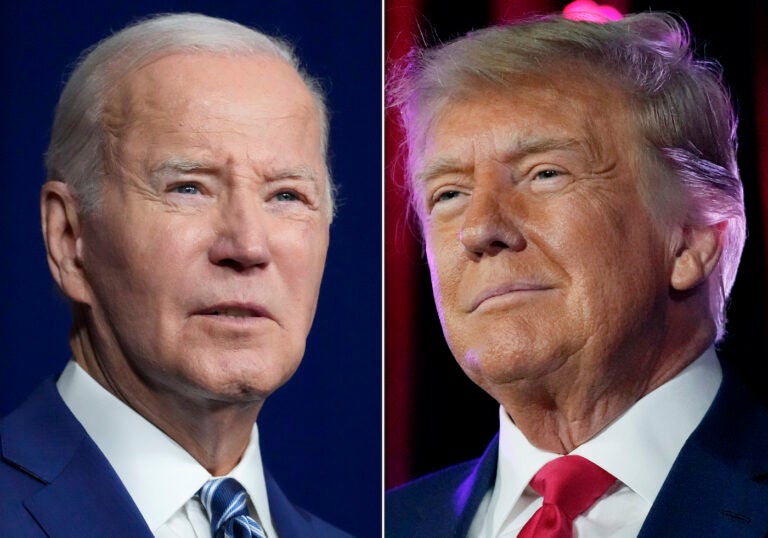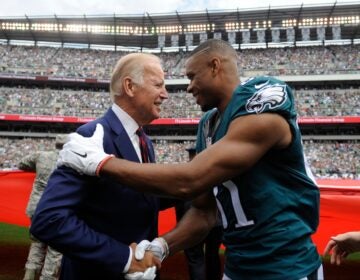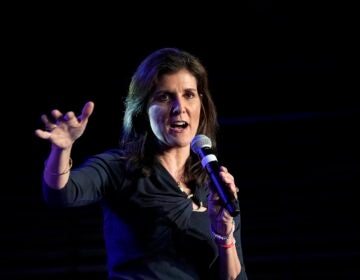4 takeaways from Super Tuesday

(Left) President Joe Biden and former President Donald Trump. (AP Photo)
One should always be prepared for a day of surprises in politics. Super Tuesday this year wasn’t one of them.
Voting went pretty much as expected on the most expansive election day of the primaries. Both President Biden and former President Donald Trump dominated across the country and are all but assured of a rematch against each other, however unpopular it may be with voters.
It’s still unclear what Trump’s opponent Nikki Haley is going to do. Late Tuesday night, Haley’s team put out a statement that did not hint at her future, only that “there remains a large block of Republican primary voters who are expressing deep concerns about Donald Trump” and called on the party to address those concerns.
But, in a GOP primary, there aren’t enough of those voters, and Trump could clinch the GOP nomination as soon as next Tuesday.
1. Barring something extraordinary from happening, it’s clear Trump is going to be the GOP nominee, if that hadn’t been clear already
It’s been apparent for some time that the country was headed for a Biden-Trump rematch, but Super Tuesday has all but assured that. Trump dominated across the country Tuesday. Haley won only in Vermont, which has only 17 delegates of the 874 at stake in the 15 states that voted in GOP contests on Super Tuesday.
Trump went into Super Tuesday with about a little more than a 200-delegate lead. As of Tuesday night, with more delegates left to allocate, Trump led by about 700. That makes it nearly impossible for Haley to catch up. The only question now is what does Haley do?
2. Haley exposed Trump’s weakness with independents, but what will they — and she — do now?
Haley won independents who voted in the Republican primaries in state after state this year, but there simply weren’t enough of them. Haley was unable to dislodge Trump voters from Trump, and that was the only way anyone other than Trump could win.
One of Haley’s biggest arguments was that she was more electable, but Trump’s voters didn’t buy that. Exit polls Tuesday night bore that out again. In Virginia, for example, voters, by 20 points, said they thought Trump was more likely to beat Biden than Haley. And this is a state that, in theory, Haley should have had a shot in. She campaigned there, and this was an open primary – meaning anyone could vote in the GOP primary. (There is no party registration in Virginia.)
Haley still has an opportunity here, but it depends on what she does in the coming days. Haley has a degree of leverage because significant majorities of her voters are continuing to tell exit pollsters that they will not support Trump in a general election. And they are the kinds of voters Trump needs to win in a general election – independents who are willing to vote for a Republican.
That could mean that Trump could consider her for his vice president. Yes, it’s still a possibility, but again, it depends on what she says and does. Or she could be well positioned for 2028, given Trump and Biden can only serve four more years. She’s leapfrogged other GOP candidates (remember Ron “DeFuture” DeSantis?). And the Republican Party has rewarded runners-up in past years. Think John McCain and Mitt Romney in the recent past.
But all of that likely depends on her coming around to Trump, like she did in 2016, because this is Trump’s party. And if she wants a future in it, she’ll probably have to eventually get back in the fold.
3. A presidential election that feels like 2016 all over again
High levels of disaffection with the two candidates. Third-party candidates clamoring and threatening to make a difference. Trump’s victory speech about immigration being a threat to the country and how he alone can fix it all, is taken live and uninterrupted on cable news.
You’d be forgiven if you think that’s about the 2016 election. It’s in many ways what’s happening again – except instead of an open presidential race, one without an incumbent, there are essentially two incumbents running. And the country has very set in views of both men.
Both have unfavorable ratings averaging above 50%. That’s largely unchanged for Trump over nine years in the public spotlight. Biden’s approval ratings are middling, and dissatisfaction with him from some wings of his party was evident again Tuesday night. Uncommitted drew almost one-fifth of the vote in Minnesota, for example, and more than 40,000 voted uncommitted in Colorado, too. That follows up from Michigan last week when 100,000 people in the primary voted for uncommitted, too, largely because of Biden’s handling of the war in Gaza.
Because of all that, if this was an election with anyone on the ballot who wasn’t Trump, this would be a race about change. Instead, it’s one between an incumbent and a quasi-incumbent, and Democrats are going to try their best to make it a referendum on Trump, with a lot on the line.
4. Yes, it’s going to be Trump and Biden, many people don’t like them, and they’re old. But people are going to vote for what’s important to them
Everyone has lots of thoughts and feelings about this election right now. Some people were likely in denial that there would really be a Biden-Trump rematch. Well, it’s really happening (barring something extraordinary and unforeseen at this point).
Eventually those who haven’t come around to that reality will. And then they will have to think past “they’re old” and get to who most aligns with their ideals, as imperfectly as either might be for some portions of their parties.
People will vote based on their priorities, whether it’s protecting reproductive rights and LGBTQ rights, or wanting to take a harder line on immigration or protecting their money. And there could be an up-ballot effect, like in states such as North Carolina and Arizona, which feature the kinds of candidates for statewide office in the mold of Trump who have hampered Republicans’ chances in the last three elections cycles.
So there will be a lot more going on in this election for what motivates voters than just the candidates’ ages, and Super Tuesday provided just a little bit more evidence for that.
9(MDAzMzI1ODY3MDEyMzkzOTE3NjIxNDg3MQ001))




